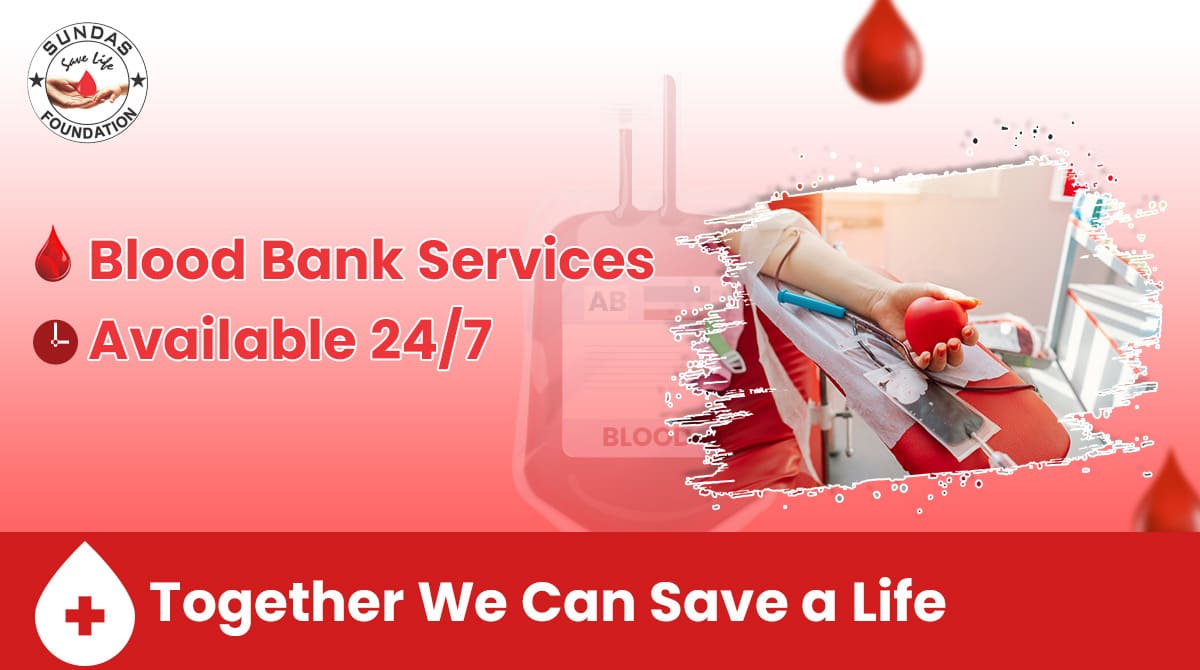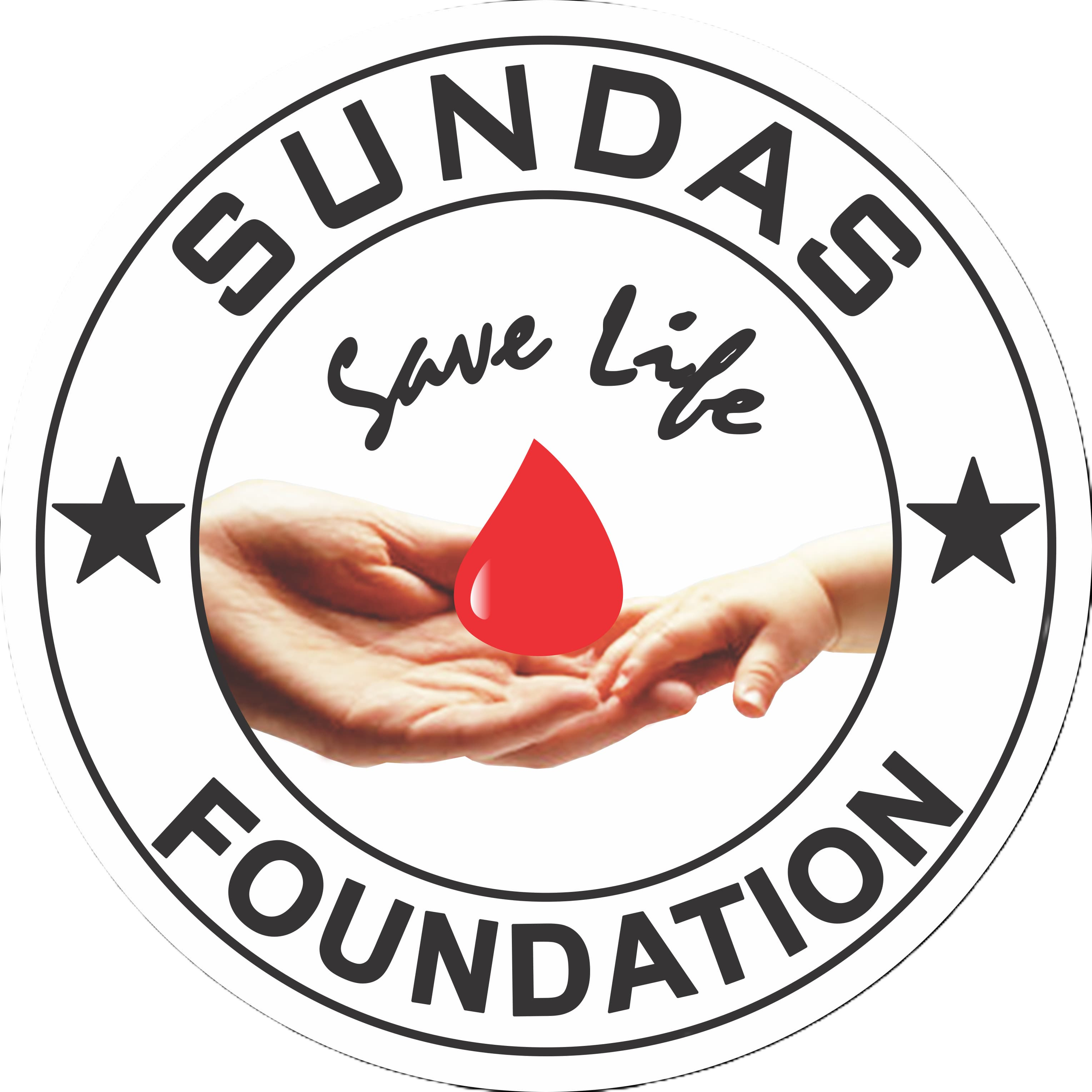
Blood Bank 24/7 - Sundas Foundation
A blood bank is a facility that stores and manages Blood and its components for transfusions. Blood banks are vital institutions, ensuring that hospitals and clinics can access Blood when needed for surgeries, trauma patients, and those suffering from chronic conditions like Thalassemia and Hemophilia. For many patients, blood transfusions are essential to save their lives and improve their health. The Sundas Foundation, a non-profit organization in Pakistan, operates as one of the leading blood hubs, providing free blood transfusion services to those in need.
This article will delve into the crucial role of blood banks, the process of blood donation, and how organizations like Sundas Foundation are making a difference.
How Long Can Blood Be Stored in a Blood Bank?
Blood is a precious commodity, and understanding how long it can be stored is essential for both donors and recipients. The shelf life of Blood depends on its components:
The storage conditions in a blood bank are meticulously controlled to ensure the Blood remains safe for use. For instance, red blood cells must be kept refrigerated, while platelets are stored at room temperature with constant agitation to prevent clumping.
How to Get Blood from Blood Bank?
When individuals require Blood, whether due to surgery, injury, or chronic conditions like Thalassemia, they need to request it from a blood bank. To get Blood from a blood bank, the process usually involves:
- Doctor’s Prescription: A healthcare provider will assess the patient's needs and write a prescription for Blood.
- Blood Type Matching: Blood banks perform compatibility testing to match the patient’s blood type with the donated Blood.
- Request from Blood Bank: The hospital or clinic will request the required blood type from the local blood bank.
- Collection and Transfusion: Once the match is found, the Blood is transported to the hospital for transfusion.
At Sundas Foundation, the process is streamlined to ensure that patients in need of blood transfusions for conditions like Hemophilia and Thalassemia receive timely and free treatment.
Storage of Blood in Blood Bank
The storage of Blood in a blood bank is crucial to ensure its safety and effectiveness. Blood is stored under strict conditions to prevent contamination and ensure that it remains viable for transfusions. Blood banks use advanced refrigeration systems and technology to store:
By adhering to these storage protocols, blood banks ensure the Blood remains safe for use even if it has to be stored for an extended period.
The Role of the Red Cross & Other Blood Banks
While the Red Cross blood bank is globally known, Pakistan’s local initiatives, such as Sundas Foundation, have taken on the immense responsibility of serving our population.
There are other names like White Cross Blood Bank, but the Sundas Foundation stands apart for its commitment to free treatments and non-profit service delivery.
Plasma and Cord Blood – Expanding the Horizon
Beyond whole Blood, blood banks now focus on specialized products:
Sundas Foundation - Leading the Way in Blood Donation
The Sundas Foundation operates one of the top blood hubs in Pakistan, providing free treatments and blood transfusions to patients, especially those suffering from Thalassemia, Hemophilia, and other life-threatening blood disorders. The foundation organizes blood donation camps and collects blood donations from individuals and communities.
With a dedicated team and extensive network, Sundas Foundation also accepts money donations to further their cause, ensuring they can continue offering these vital services to underprivileged patients.
The Sundas Foundation operates blood banks across Pakistan, including in major cities such as Karachi, Lahore, and Sukkur. The foundation’s blood donation camps play a key role in maintaining a steady blood supply.
How Much Does Interstate Blood Bank Pay for Blood Donation?
Blood banks in Pakistan generally do not offer payment for donations, as blood donation is considered an altruistic act. However, some private blood banks may offer incentives or reimburse expenses for donors, like covering transportation costs. Interstate Blood Bank, however, operates with the same principles, encouraging voluntary, non-remunerated blood donations.
At Sundas Foundation, blood donation is entirely voluntary and free of charge, as the organization’s mission is to help those in need, especially in impoverished communities.
How Much to Bank Cord Blood?
Cord blood collected after childbirth can be an essential resource in treating various diseases, from cancer and blood disorders to mental illnesses. While the costs associated with banking cord blood may differ depending on its provider in Pakistan, private facilities often charge fees. Meanwhile, Sundas Foundation strives to offer its blood services free of charge, providing assistance and access for anyone needing access in future.
Why Choose Sundas Foundation?
- Free blood transfusions for thalassemia and hemophilia patients.
- Safe and screened Blood collected from voluntary donors.
- 24/7 availability of all major blood types.
- Blood camps are organized regularly across Pakistan.
- Offices and collection centers in all major cities.
- Transparent donation process for Blood and funds.
Whether you want to donate Blood, arrange a blood camp, or contribute through zakat or charity, Sundas Foundation offers a trustworthy platform.
Lifeline Blood Bank – A Symbol of Hope
Life Line Blood Bank is often a term people use to describe centers that provide life-saving support. For thousands of patients, Sundas Foundation is that lifeline blood bank—a place where hope is restored, and lives are saved daily.
How You Can Help
There are two major ways you can support Sundas Foundation:
Donate Blood
- Visit any Sundas center.
- Give Blood and save a life.
- Encourage friends and family to join.
Donate Money
- Sponsor a patient’s monthly blood transfusion.
- Donate zakat, sadaqah, or charity.
- Help cover the cost of lab testing, equipment, and storage.
Your donations go directly to saving lives. Sundas Foundation is audited, registered, and your donation is tax-deductible.
Conclusion
Blood banks play an essential role in saving lives, and organizations like the Sundas Foundation are crucial in ensuring access to blood transfusions for those in need. Whether it’s through donating Blood, money, or supporting blood donation camps, everyone can make a difference. Sundas Foundation’s work in Pakistan is a testament to the power of community and compassion, making life-saving treatments accessible to all, especially the underprivileged.
By supporting organizations like Sundas Foundation, we contribute to the broader cause of saving lives and providing hope for patients battling chronic blood disorders.
FAQ
What is a blood bank?
A blood bank is a facility that stores Blood and its components (red blood cells, plasma, platelets) for future use in medical treatments, such as surgeries, trauma care, and chronic diseases like Thalassemia.
How can I donate Blood to Sundas Foundation?
To donate Blood to the Sundas Foundation, you can visit any of their blood donation camps or contact their offices in various cities like Karachi, Lahore, and Sukkur. The foundation always welcomes volunteers for blood donations to help save lives.
What happens if I need Blood in Pakistan?
If you need Blood, you can approach local blood banks like Sundas Foundation, Red Cross, or White Cross. They will ensure that you receive the necessary blood transfusion after conducting proper testing and blood type matching.
Can I donate Blood if I have Thalassemia?
If you have Thalassemia, you can’t donate Blood, as you would need blood transfusions yourself. However, Sundas Foundation provides free blood transfusion services to people suffering from Thalassemia.
How does Sundas Foundation help people in need?
Sundas Foundation provides free blood transfusions for Thalassemia, Hemophilia, and other chronic conditions. The organization also operates blood donation camps and accepts both Blood and financial donations to support their work.
What cities in Pakistan does Sundas Foundation operate in?
Sundas Foundation operates across Pakistan, including in major cities like Karachi, Lahore, and Sukkur, providing free Blood and medical services to those in need.

